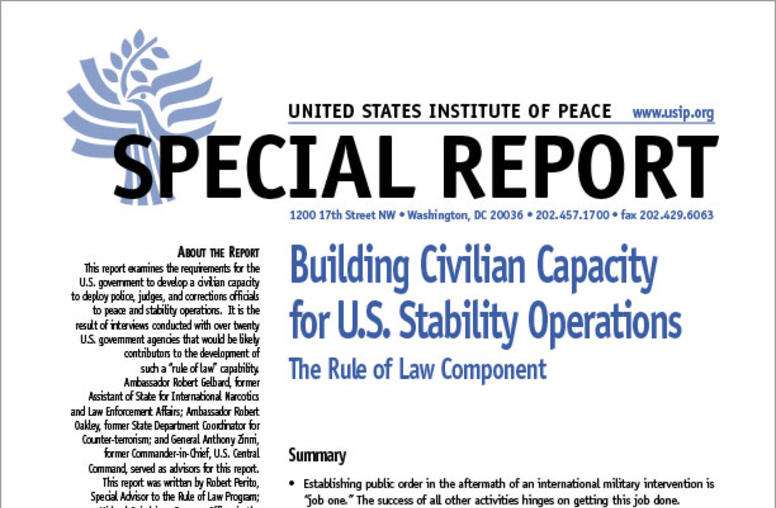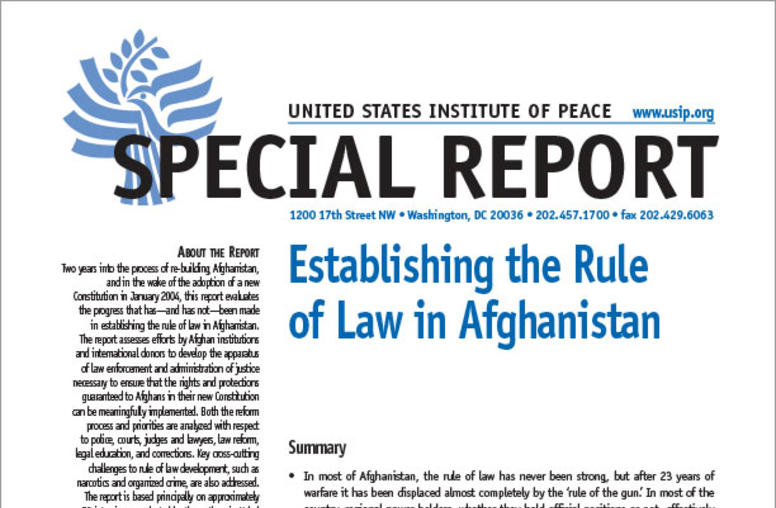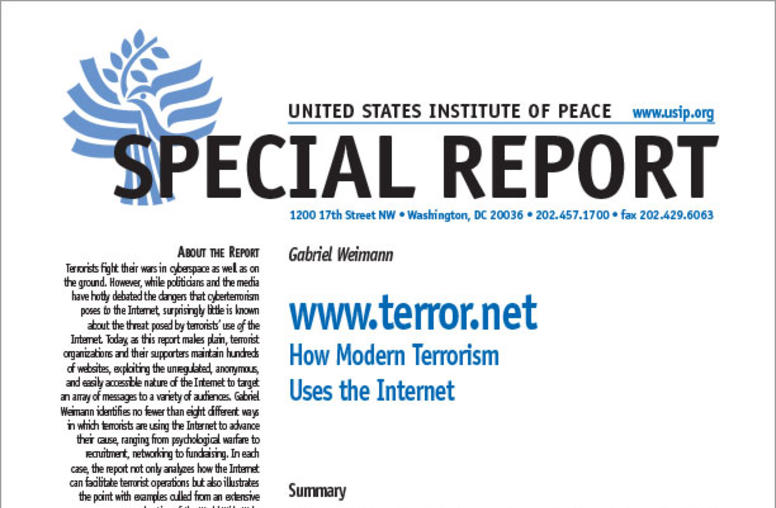Publications
Articles, publications, books, tools and multimedia features from the U.S. Institute of Peace provide the latest news, analysis, research findings, practitioner guides and reports, all related to the conflict zones and issues that are at the center of the Institute’s work to prevent and reduce violent conflict.
The Iraqi Shi'i Community: Between Sistani, Muqtada, the IGC, and the CPA
Congressional Testimony by Amatzia Baram, Senior Fellow, U.S. Institute of Peace.
Mosque and State: Religion and Politics in Iraq
A Special Discussion on Capitol Hill Sponsored by The Faith and Politics Institute and the United States Institute of Peace.
Kosovo: Status with Standards
On March 17-19, anti-Serb rioting by Albanians in Kosovo resulted in death and destruction. USIP considers what happened as well as why and how such events can be prevented in the future.

Building Civilian Capacity for U.S. Stability Operations: The Rule of Law Component
Establishing public order in the aftermath of an international military intervention is "job one." The success of all other activities hinges on getting this job done. Military combat units, however, are neither trained nor equipped for riot control and law enforcement functions. No rapidly deployable U.S. civilian capacity exists to provide the full spectrum of rule of law functions—from intelligence to incarceration—needed to support military forces engaged in peace and stability operations...
Genocide Convention at Fifty: Web Links
Below are links by topical categories to resources primarily in English providing information on genocide. Courts and Tribunals Genocide Studies/Projects Selected Documents and Decisions These links complement the Institute Special Report: The Genocide Convention at Fifty. Courts and Tribunals International Court of Justice (ICJ) Also known as the World Court, this site (in English and French) contains general infor...
Somalia: Ten Years Later
Years of negotiations marked by bickering among various Somali factions have produced little. Recently hope has emerged that an agreement to create a national Somali government might be in sight. What are the prospects for peace?
The Current Situation in Serbia and Montenegro
Congressional Testimony by Dan Serwer, director of the Balkans Initiative and Peace and Stability Operations.

Establishing the Rule of Law in Afghanistan
In most of Afghanistan, the rule of law has never been strong, but after 23 years of warfare it has been displaced almost completely by the 'rule of the gun.' In most of the country, regional power-holders, whether they hold official positions or not, effectively exercise political, police and judicial authority through their control of militia forces.

www.terror.net: How Modern Terrorism Uses the Internet
Summary The great virtues of the Internet—ease of access, lack of regulation, vast potential audiences, and fast flow of information, among others—have been turned to the advantage of groups committed to terrorizing societies to achieve their goals. Today, all active terrorist groups have established their presence on the Internet. Our scan of the Internet in 2003–4 revealed hundreds of websites serving terrorists and their supporters.
Serbia Needs a Push in the Right Direction
More than three years after Serbia's reformists overthrew the regime of Slobodan Milosevic, Belgrade appears to be at a crossroads again.